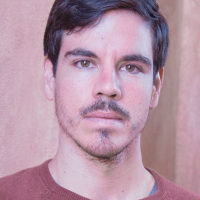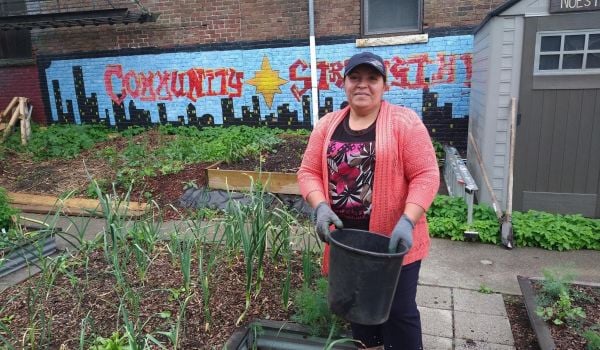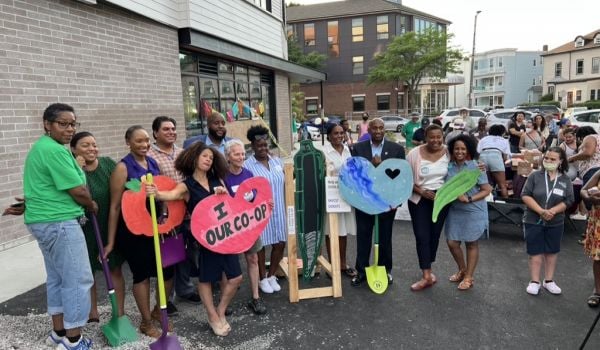When two Iraqi sisters, displaced by conflict in their home country, were resettled in Boston after years of being out of school, JVS Boston, a community organization that helps refugees and immigrants achieve financial independence, guided them through their Adult Diploma Program and secured them acceptance into Bunker Hill Community College. They’re still taking classes there today.
Yoldie Feona, now a pharmacy technician at Walgreens, landed in Boston in 2010 with her daughter after fleeing an abusive relationship in Haiti. At first, they were homeless. But JVS linked Feona with its Pharmacy Technician Training program, which she completed in 2015, and also enrolled her in a program called MassLEAP, which monitored and assisted her and her family with support services for five years. She’s been promoted twice, and JVS is providing her with a financial coach to help her build her savings with her new income.
“It was intense, but I’m very proud and very satisfied that I did it,” she says, referring to the pharmacy program in an interview with JVS Boston. “To get my life where I am today, it was well worth it.”
JVS Boston is just one of several programs, according to the Institute for Women’s Policy Research (IWPR), that braid federal and local resources into an effective salve for people in need. From Cincinnati to Seattle, these efforts provide “key unmet needs” to job seekers like Feona, according to IWPR researchers.
In December, the institute released findings from a survey of 168 workforce development administrators across the U.S. that quantified the types of personal and family issues threatening to derail trainees, most of which were women, from finishing career programs. Sixty-five percent said child care was the biggest need for women in their programs. Fifty-two percent said schedule conflicts — with other responsibilities like part-time work needed to sustain a living — were another key factor. And about one-third pointed to domestic violence as a common, untended trauma.
But the report also noted that support service organizations that formed a mosaic with other local providers advancing the same causes are every effective: These types of partnerships had an 80 percent success rate of helping individuals complete job training programs from the very first day.
Julie Anderson, a senior research associate for IWPR who has traveled to work sites across the U.S., says that different organizations face different problems, depending on the community they serve.
“In places that are more urban, one of the needs they all identified as struggling with was housing,” says Anderson. People were partly entering workforce programs to find better-paying jobs so that they could keep up with the rise of rent in cities like Seattle. For example, the Seattle Jobs Initiative has been providing career services and connecting low-income individuals with affordable housing for nearly two decades.
Job seekers in rural areas are more likely to be hampered by transportation issues. “If there’s no public transit system, people have to have cars,” Anderson says. “That’s a different need to be filled than working with local transport systems to provide [discount] bus passes.”
Eight organizations that IWPR highlighted in a January report, however, were all unified in one aspect, though: an ability to maneuver dwindling resources and increasing demand by shifting federal funds for programs like SNAP among projects, and create tight networks with other service providers in areas like food assistance and domestic violence so that they can give trainees and their families a lifeline just by picking up the phone and calling a nearby partner.
“These groups often have limited staff capacity, limited funding, and their focus is often on providing the training,” says Anderson. “But it’s acknowledged that providing those supportive services really makes the difference.”
Karin Blum, the chief development officer at JVS Boston, says her organization serves an average of 500 refugees every year. For the nearly 2,000 refugees, immigrants and locals they helped get jobs in 2015, 85 percent stuck with their new careers. The others come to JVS for English language classes and refugee resettlement services.
On top of relationships with the Metropolitan Boston Housing Partnership to help trainees find stable places to live, JVS also works closely with organizations that tend to the immigrant and refugee populations that pass through their nursing assistant and pharmacy technician training.
They’re organizations rooted in cultures from Ethiopia, Iraq, Haiti and the Dominican Republic, but in the U.S. they’re weaved into the social fabric just like the Boston-born. They’re also giving back to the urban community that saved their lives — a direct challenge to the narratives surfacing in today’s political climate.
Giving back, for them, might also quite literally mean saving a life, according to Blum: Nearly all of the CNA training slots currently go to immigrants.
The Equity Factor is made possible with the support of the Surdna Foundation.

Johnny Magdaleno is a journalist, writer and photographer. His writing and photographs have been published by The Guardian, Al Jazeera, NPR, Newsweek, VICE News, the Huffington Post, the Christian Science Monitor and others. He was the 2016-2017 equitable cities fellow at Next City.

















